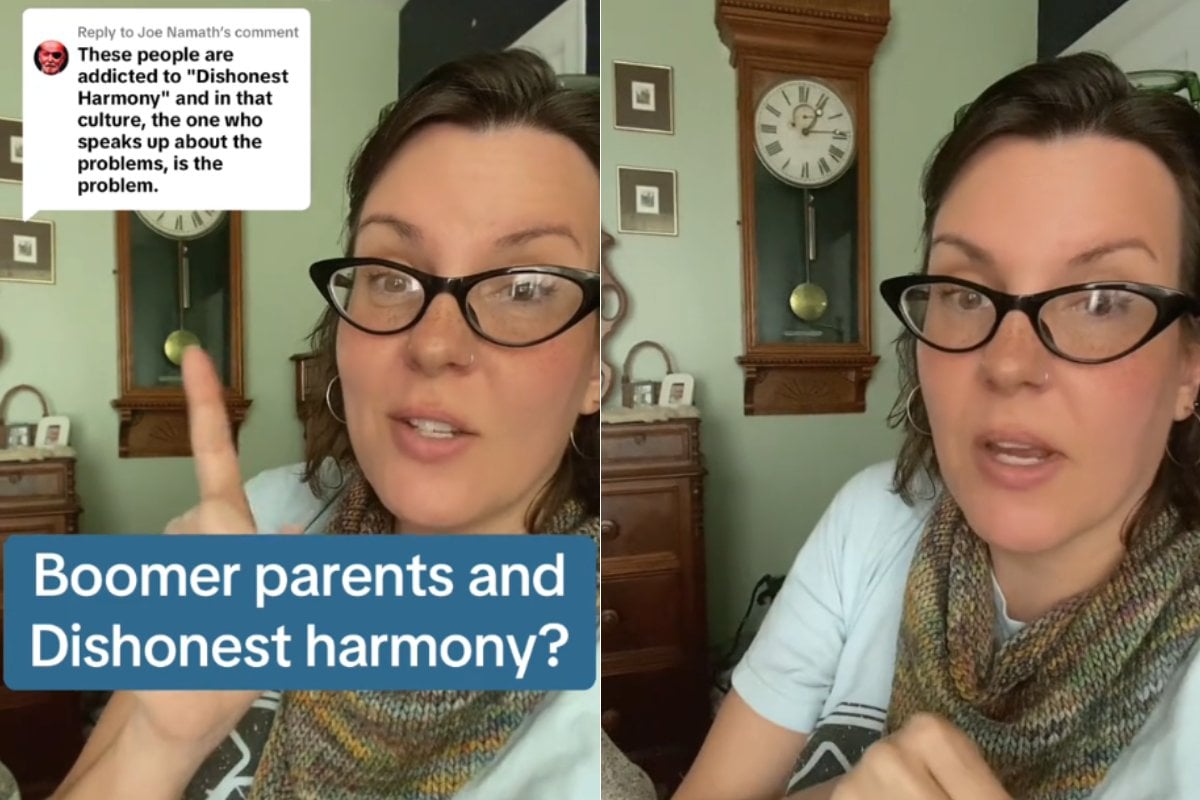
Look out, because the generational divide is at it again — and this time, it's coming for the Boomers.
Gen X and Millennials are having something of a lightbulb moment, after TikTok user Angela Baker made a video about a particular style of parenting apparently favoured by baby boomers — and her explanation hit the nail on the head for many viewers.
Going into detail about the concept of "dishonest harmony", the now-viral vid caused a widespread ripple epiphany, with many now claiming they have a label to help them understand their own experiences with their parents.
In the video, which has now been viewed almost 800,000 times, Angela (who has garnered quite a following for her candid videos speaking about family relationship dynamics) says, "Fellow Gen X and millennials, let's talk about our parents and their need for dishonest harmony," she said.
She launches into how she is often shut down by Boomers when the topic of "dishonest harmony" is brought up with the most common response being quite a strong attitude of dismissal. Instead of unpacking the effects of this parenting style, she says, they'd prefer people "stop talking about it. We don't need to hear about it. Move on. Be quiet."
Which is kind of ironic given that response is the very reason "dishonest harmony" needs to be addressed.
"What that's showing is their lack of ability to handle the distress that they feel when we talk openly about uncomfortable things," said Baker. "What they want is dishonest harmony rather than honest conflict."

Top Comments